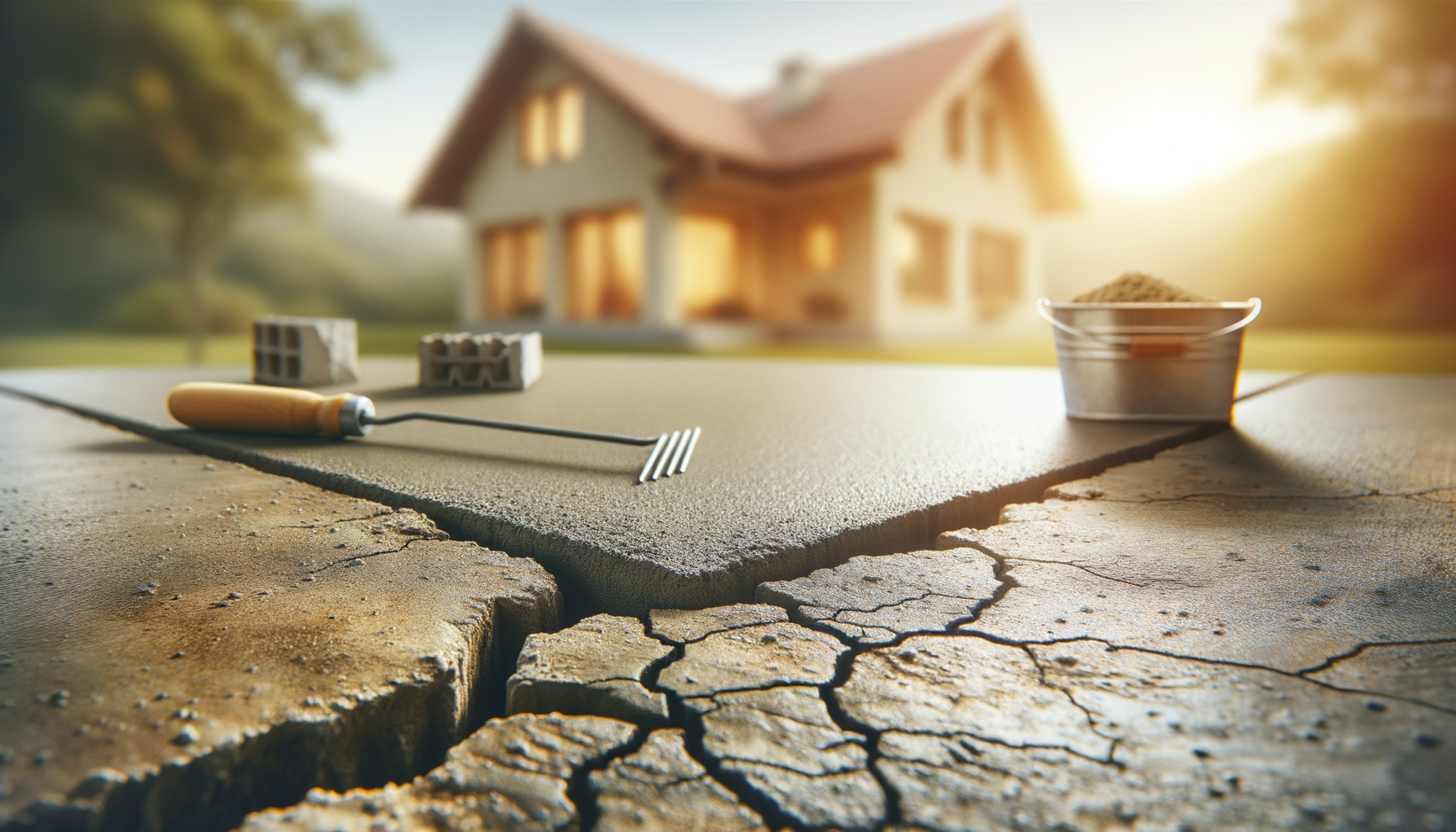What You Need to Know About Slab Foundations
What Is a Slab Foundation?
A slab foundation is a flat piece of concrete that your house sits on. It also acts as the floor of your home. This type of foundation is made from concrete and steel bars. The good thing about slab foundations is that they are quick and cheap to install. They also keep termites away and don’t need much upkeep. However, they can crack easily, get cold, and have tricky plumbing repairs.
Common Problems with Slab Foundations
Slab foundations can have different problems such as:
- Cracking: This happens when the ground moves, the temperature changes, or the foundation is not reinforced well.
- Settling: This means the ground under the slab moves or sinks, causing uneven or sunken areas.
- Moisture Damage: Poor drainage or leaky pipes can cause water to get in, leading to cracks, mold, and other issues.
How to Tell If Your Slab Foundation Needs Repair
Cracks You Can See
Look for cracks in your floors, walls, and ceilings. Tiny hairline cracks are usually not serious, but large or uneven cracks might mean big problems and should be checked by a professional.
Uneven Floors
Use a level or just walk around to see if your floors are uneven. This can be a tripping hazard and a sign of foundation issues that need fixing soon.
Doors and Windows Stick
If your doors and windows are hard to open or close, it could mean your foundation is shifting and needs repair.
Water Leaks
Check for wet spots, especially in basements or ground-floor rooms. Mold can grow in damp areas and weaken your foundation.
Foundation Settling Signs
Look for slopes, dips in the foundation, cracks in interior walls, and misaligned doors or windows. These may be caused by things like poor soil, large trees taking moisture from the soil, or erosion.
How to Find Good Repair Companies Near You
Do Some Research
Use the internet to find companies that do slab foundation repairs. Search for terms like "slab foundation repair near me" to find some options.
Read Reviews
Check out what other customers have to say on websites like Google Reviews, Yelp, and the Better Business Bureau.
Ask for Recommendations
Talk to your neighbors and friends to see if they can suggest anyone. You can also ask for advice on social media or local forums like Nextdoor.
Check Credentials
Make sure the company has the right licenses and certifications. They should also have insurance and offer warranties to cover any damage during the repair.
Compare Quotes and Services
Get Estimates
Ask for quotes from different companies to understand the fair price. Make sure each quote includes all the work that needs to be done, materials, labor costs, and any extra fees.
Look at the Work Plan
The company should give you a detailed plan of what they will do, how long it will take, and when they will finish.
Read the Contract
Understand the payment schedule, deadlines, and anything extra you might need to pay for. Check what the warranty covers and how long it lasts.
DIY vs. Professional Repairs
When You Can DIY
If the problems are small, like tiny cracks, you can use epoxy or concrete patching kits and basic tools to fix them yourself.
When to Call a Pro
If the problems are big, like large cracks or sinking areas, you need a professional. Trying to fix big problems yourself can make things worse and cost more in the long run.
Cost Comparison
DIY repairs might cost a few hundred dollars, while professional repairs can cost thousands. Professional repairs usually last longer and come with a warranty.
Keeping Your Slab Foundation in Good Shape
Regular Inspections
Check your foundation at least once a year or after bad weather. Look for cracks, wet spots, uneven areas, and any other issues.
Good Drainage
Make sure water flows away from your home with gutters, downspouts, and proper soil grading.
Soil Moisture Control
Keep the soil around your home moist during dry times to prevent it from shrinking and causing foundation problems. Don’t plant trees too close to your home, and fix soil erosion right away.
Final Tips for Homeowners
Keep Records
Write down any repairs and inspections. This helps with future maintenance and can be useful if you decide to sell your home.
Stay Informed
Learn more about foundation care by reading home maintenance blogs, attending local seminars, and keeping up with the latest tips online.
Be Proactive
Fixing problems early can save you a lot of money. Regular check-ups and quick repairs are key to keeping your foundation strong.
By following these simple steps, you can find reliable slab foundation repair services near you. Keeping your foundation in good shape will protect your home and give you peace of mind.


Leave a Reply